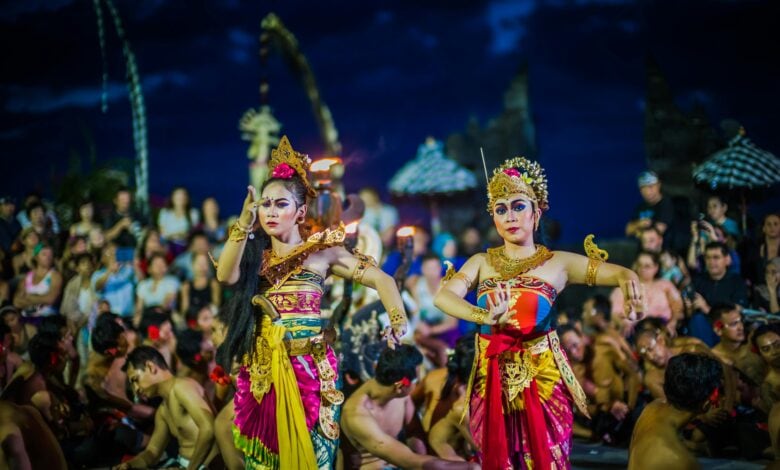Bali Cracks Down: New Tourist Rules Include Controversial Temple Ban
including menstruating women

Bali’s tightening the reins on unruly tourism—and the new code of conduct isn’t pulling any punches. As the island grapples with the rising tide of international visitors, officials have introduced a fresh set of dos and don’ts that aim to preserve the island’s culture and sacred spaces. But one rule in particular is stirring global debate: menstruating women are now being told to steer clear of temples.
According to a new set of visitor guidelines published by Love Bali—a government-endorsed tourism platform—the presence of menstrual blood is considered spiritually impure. In line with traditional Balinese beliefs, temple entry is off-limits for menstruating women due to concerns that it could disturb the sacred balance, cause women to faint or become ill, and even bring misfortune to the community.

The guidelines cite ancestral from Visit Bali stories warning of spiritual consequences, ranging from fainting spells to supernatural incidents and even the potential for natural disasters. It’s a strong claim—and one that’s reigniting global conversations around religious customs and gender equality.
Whether temple staff will—or even can—enforce this remains murky. But this directive sits within a broader push to curb disrespectful behaviour by tourists, which has become a pressing concern for the island.
Bali saw over 6.3 million international arrivals in 2024, blowing past its pre-COVID high. And while the economic boost is undeniable, so too is the fallout from poorly behaved visitors. Officials cite instances of public intoxication, swearing at locals, climbing sacred trees in the nude, and misusing temples for social media content as some of the more eye-watering examples of tourist misconduct.
In response, authorities are cracking down. New rules Love Bali– the official website – require modest dress—particularly when entering temples—with access limited to worshippers in traditional Balinese attire. Disrespectful or aggressive behaviour is now officially outlawed. And there’s a mandatory tourism levy in place, with non-payment potentially leading to denied entry to popular attractions or even prosecution under Indonesian law.
Most of the rules fall under the banner of basic decency: don’t insult the culture, don’t treat a temple like a photo op, and for goodness’ sake, wear appropriate clothing. But the ban on menstruating women? That’s where things get complicated—especially for travellers unfamiliar with or challenged by the idea of ritual impurity tied to natural bodily functions.

Is it an act of cultural preservation or a step too far into gender discrimination?
The answer, as always, depends on who you ask. But one thing’s clear: Bali wants respect, not rebellion. And if you’re heading there in 2025, you’ll want to pack a little more cultural awareness.
From the Love Bali document
What Tourists Are NOT Allowed to Do
- Enter sacred temple areas (Utamaning Mandala & Madyaning Mandala)unless they are worshippers wearing traditional Balinese attire. Menstruating women are also prohibited from entering these areas.
- Climb sacred trees or monuments– This includes taking inappropriate or nude photos at religious sites.
- Litter or pollute Bali’s environment– Throwing waste in lakes, rivers, or the ocean is strictly prohibited.
- Use single-use plastics– Plastic bags, Styrofoam, plastic straws, and plastic-packaged drinks are banned.
- Engage in aggressive or disrespectful behavior– This includes swearing, causing disturbances, or being rude to locals, officials, or fellow tourists. Sharing hate speech or misinformation on social media is also prohibited.
- Work or run a business without proper permits– Tourists are not allowed to conduct business or work in Bali unless they hold official documentation from Indonesian authorities.
- Participate in illegal activities– This includes trading drugs, endangered animals, sacred artifacts, or any prohibited goods.
Enforcement & Penalties
Governor Koster made it clear that these rules will be strictly enforced. Tourists who fail to pay the tourist levy will be denied access to attractions, and those caught violating the regulations will face legal consequences in accordance with Indonesian law.



